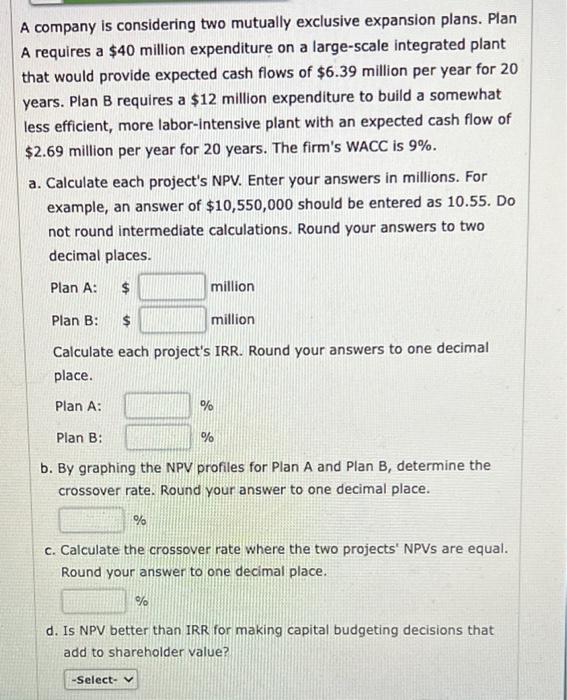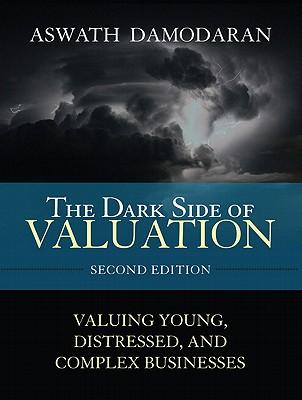A company is considering two mutually exclusive expansion plans. Plan A requires a $40 million expenditure on a large-scale integrated plant that would provide expected cash flows of $6.39 million per year for 20 years. Plan B requires a $12 million expenditure to build a somewhat less efficient, more labor-intensive plant with an expected cash flow of $2.69 million per year for 20 years. The firm's WACC is 9%. a. Calculate each project's NPV. Enter your answers in millions. For example, an answer of $10,550,000 should be entered as 10.55. Do not round intermediate calculations. Round your answers to two decimal places. Plan A: $ million Plan B: $ million Calculate each project's IRR. Round your answers to one decimal place. Plan A: % Plan B : % b. By graphing the NPV profiles for Plan A and Plan B, determine the crossover rate. Round your answer to one decimal place. % C. Calculate the crossover rate where the two projects' NPVs are equal. Round your answer to one decimal place. % d. Is NPV better than IRR for making capital budgeting decisions that add to shareholder value? -Select- A company is considering two mutually exclusive expansion plans. Plan A requires a $40 million expenditure on a large-scale integrated plant that would provide expected cash flows of $6.39 million per year for 20 years. Plan B requires a $12 million expenditure to build a somewhat less efficient, more labor-intensive plant with an expected cash flow of $2.69 million per year for 20 years. The firm's WACC is 9%. a. Calculate each project's NPV. Enter your answers in millions. For example, an answer of $10,550,000 should be entered as 10.55. Do not round intermediate calculations. Round your answers to two decimal places. Plan A: $ million Plan B: $ million Calculate each project's IRR. Round your answers to one decimal place. Plan A: % Plan B : % b. By graphing the NPV profiles for Plan A and Plan B, determine the crossover rate. Round your answer to one decimal place. % C. Calculate the crossover rate where the two projects' NPVs are equal. Round your answer to one decimal place. % d. Is NPV better than IRR for making capital budgeting decisions that add to shareholder value? -Select







